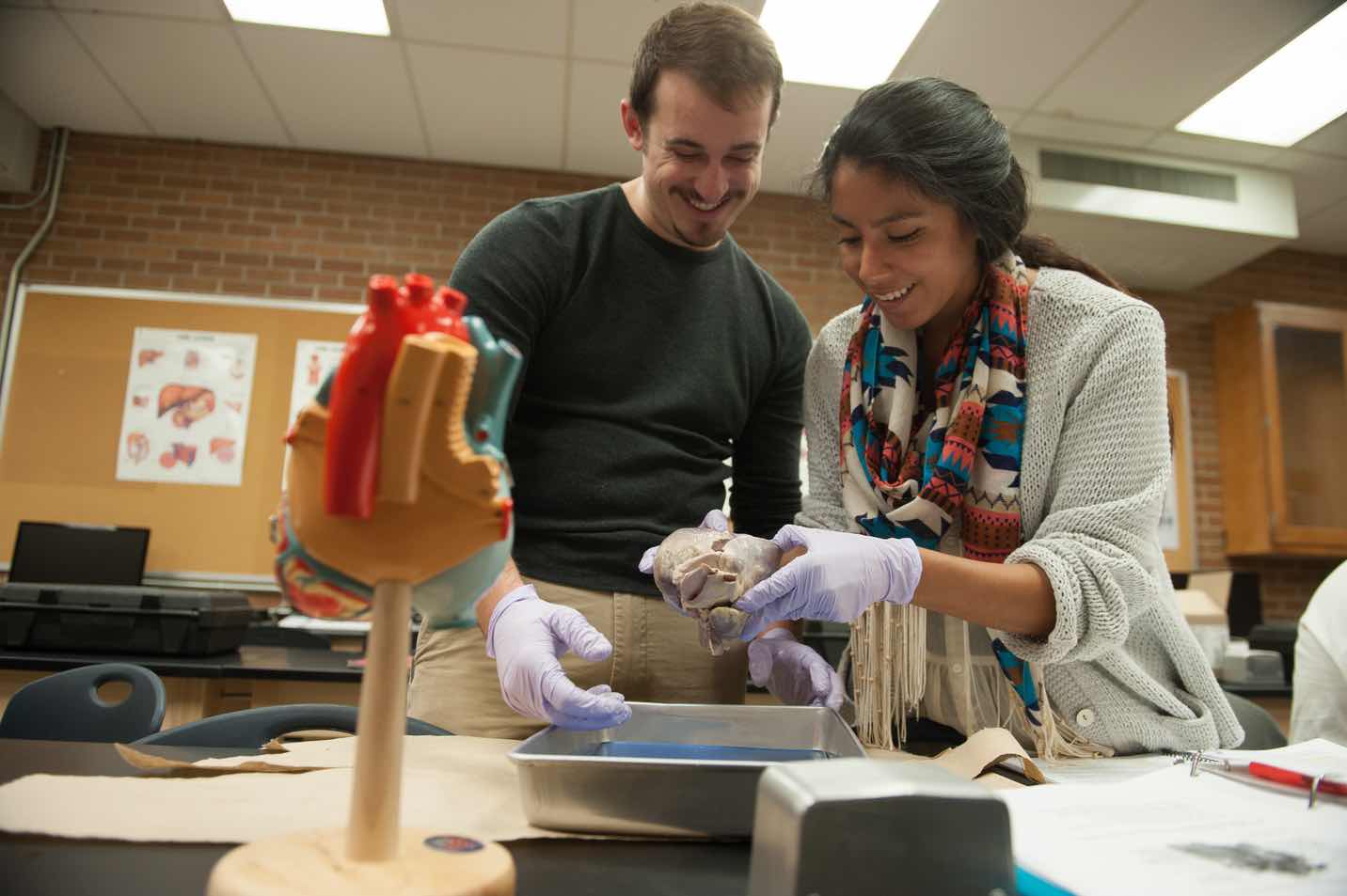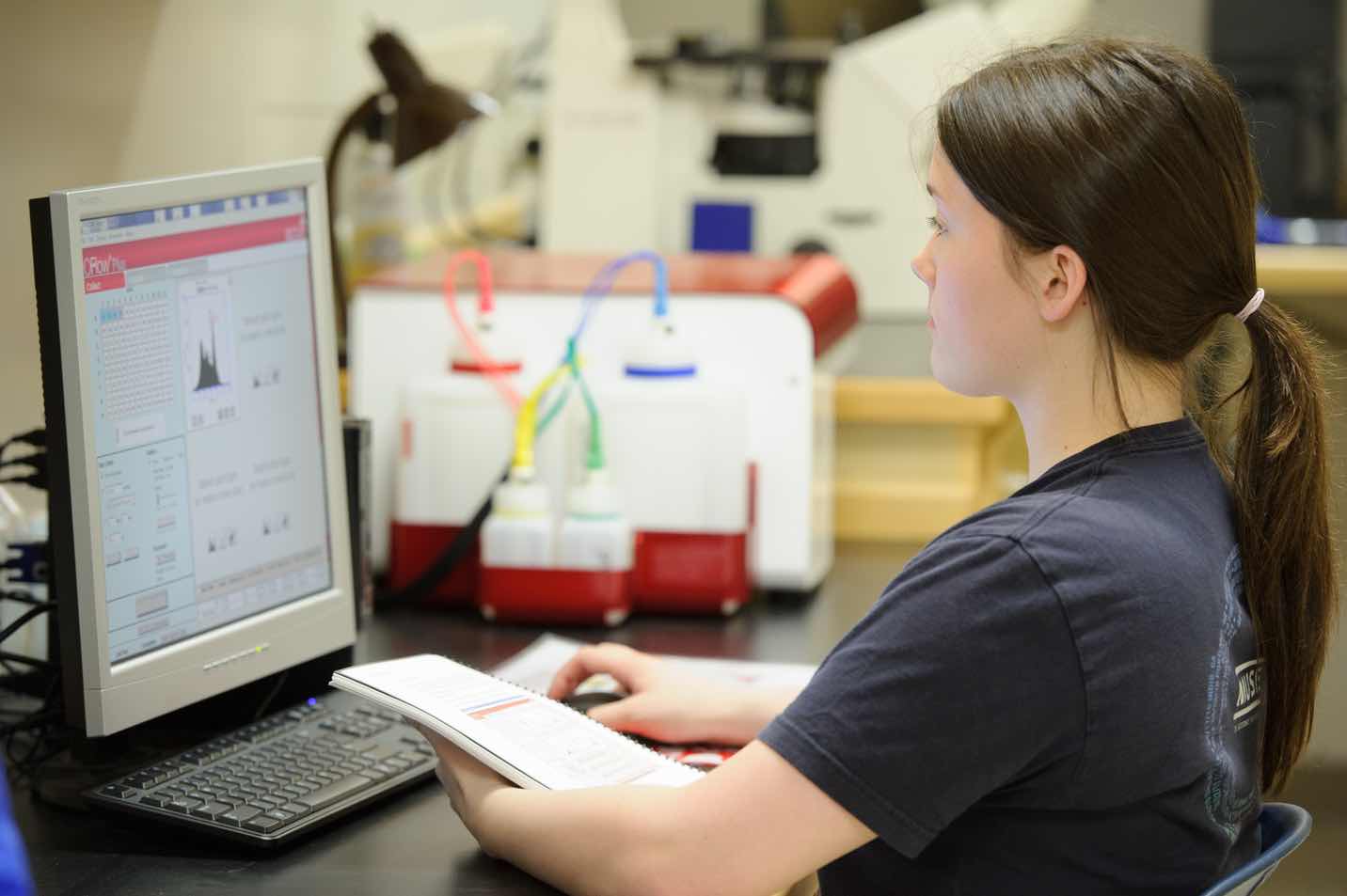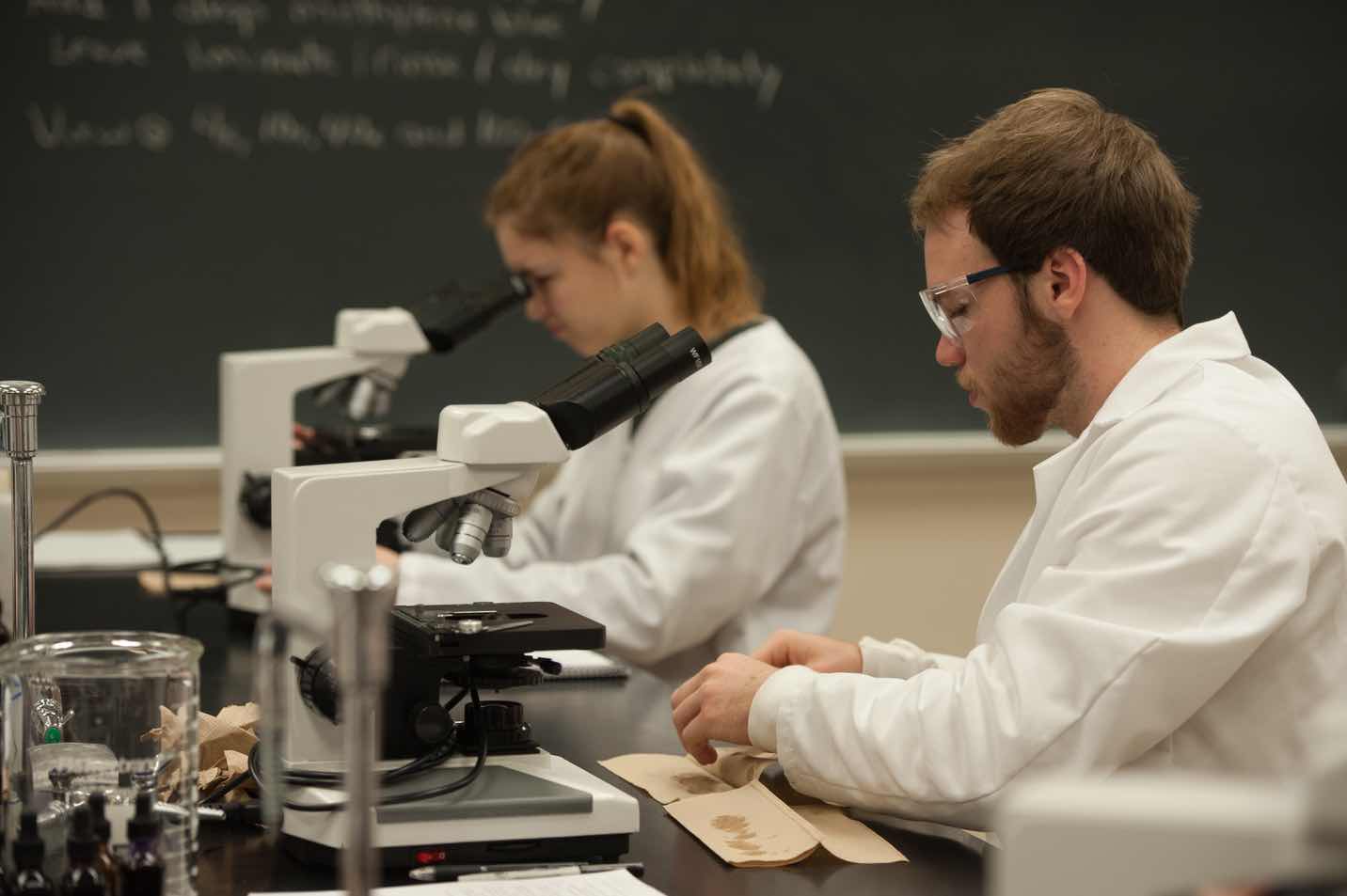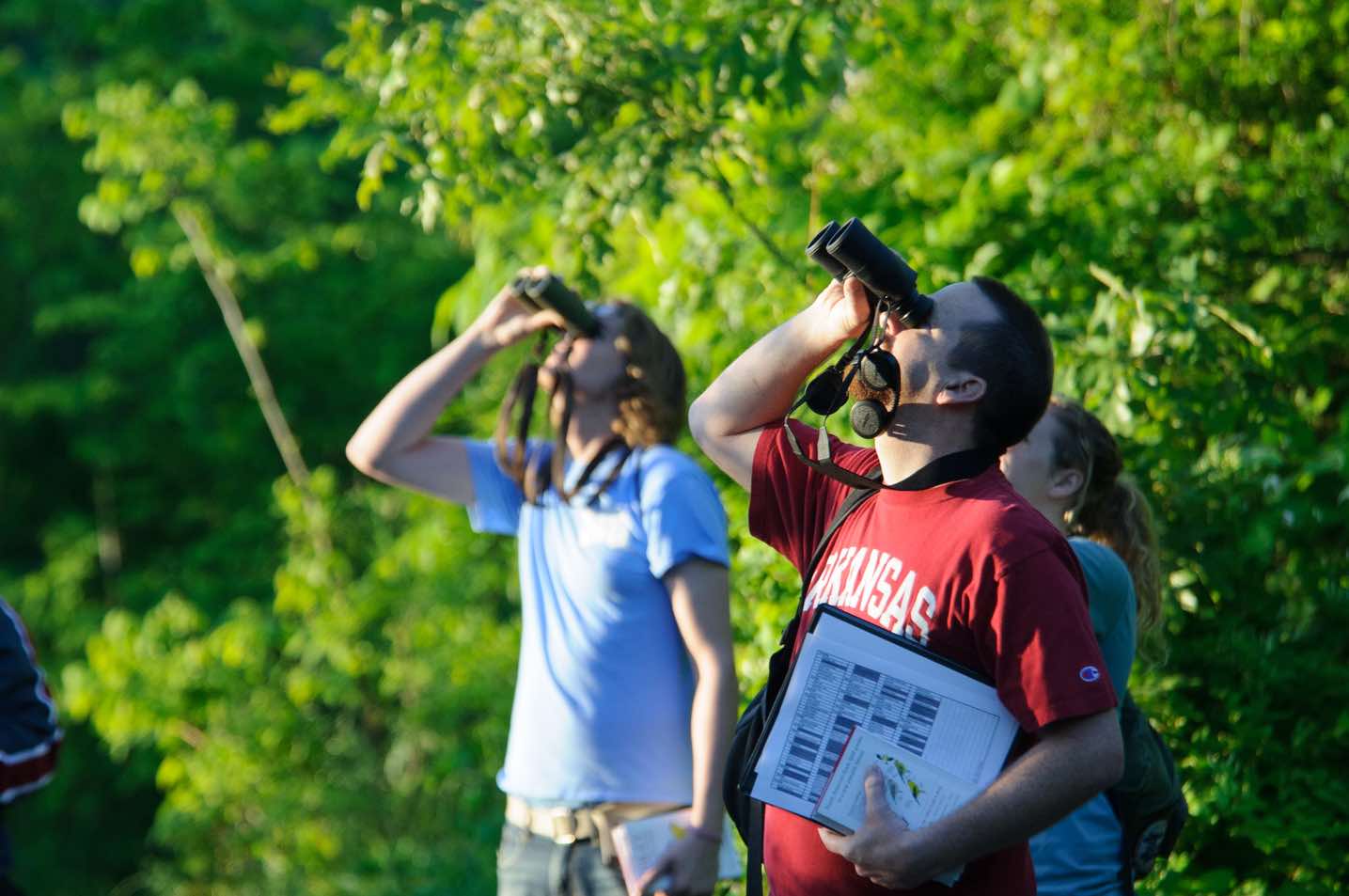Biology
-

-

From pharmacy to forensic science, we prepare students for the workplace and competitive professional programs.
Academic Programs -

Take a closer look at recent faculty research and published works.
Our Faculty -

The world is our classroom — pursue a major that explores biological sciences, fisheries and wildlife programs.
Learn more
Valuing diversity, instilling wonder, and preparing scholars
Welcome to the Biology Department in the Pryor-England Center for Science and Engineering. We hope you are considering Harding for your undergraduate studies. Members of our faculty have a variety of specialty training and provide a wide range of courses.
We offer degree programs designed to prepare students for post-graduate work in most biological fields, such as cell and molecular biology, ecology, genetics, and marine biology. Many of our students attend professional programs in medicine, pharmacology, biotechnology, and forensic science, to name a few.
We work to make a supportive student-learning environment and provide excellent teaching in a Christian setting. The Center for Science and Engineering utilizes current technology in labs and classrooms.
Harding is located near the Ozark Mountains, in a region of America steeped in culture, with abundant waterfalls, caverns, and outdoor adventure — a rich environment for the aspiring biologist. We welcome you to visit our campus.
Our Mission
The Department of Biology provides Harding University students the opportunity to explore the diversity of life on earth from a variety of scientific perspectives, to develop a sense of God-given responsibility to be good stewards of that life, to prepare for careers that build on an appreciation of the biological sciences. In pursuit of this mission, the faculty will:
- Train students with diverse backgrounds, interests, and goals in the process by which biological data are gathered, analyzed, and interpreted
- Encourage critical evaluation of biological data and theories using multiple perspectives
- Humbly facilitate conversations among disparate viewpoints regarding the integration of science and scripture to recognize God as creator
- Develop an inclusive community of faculty, students, and alumni that submits to God as our creator and Lord.
- Integrate interdisciplinary tools with biological concepts to build connections to the larger society
- Provide a foundation of knowledge for students to understand the current state of the biological sciences and its organizing principles and theories
Program Learning Outcomes
BIOLOGICAL KNOWLEDGE: Students will demonstrate a knowledge of biology consistent with coursework and experiences during their time at Harding University.
- Core Competencies:
- Demonstrate knowledge that compares favorably to programs nationally
- Place new information and applications in the context of foundational theories of biology
SCIENTIFIC COMMUNICATION: Students will assimilate scientific information to communicate biological concepts, processes, and conclusions at a professional level.
- Core Competencies:
- Locate, evaluate, and properly cite information from peer-reviewed journals, scientific reports, and online databases
- Compile biological data and theory concerning a current biological question into a professional level communication in which they explain the data and theory
- Communicate the strengths and limitation of the biological sciences and how scientific evidence is used to shape discussions of issues within the broader culture
SCIENTIFIC PROCESS: Students will describe and demonstrate the process of science.
- Core Competencies
- Develop biologically-focused questions based on current theory
- Develop appropriate conclusions using support from both qualitative and quantitative analyses
- Describe and evaluate participation in the process of science
QUANTITATIVE REASONING: Students will understand and interpret statistics and its contribution(s) to biological conclusions. Students will employ the use of models and/or simulations as a method of scientific reasoning.
- Core Competencies
- Employ the use of statistics, models, and simulation to generate biological conclusions
SCIENCE AND FAITH: Students will describe and explore in a thoughtful, humble manner the interface of science and religion.
- Core Competencies
- Integrate science and faith into a God-centered worldview
Recent News
- Congratulations to all the students who presented at the Arkansas INBRE conference in Fayetteville, Ark. and at the Southeast Regional IDeA conference in San Juan, PR in Nov 2021. The Biology Department has 6 students present at these conferences including Claire Burton who was selected to give an oral presentation at the Arkansas INBRE conference and Alicen Wilcox who won "Best Student Presentation" at the Southeast Regional IDeA conference!
- Dr. Patrick Ruhl and the Gilliam Biological Research Station were featured on the local news for efforts to involve students in field experiences and research.
Meet our Staff
|
Mrs. Lisa Valentine, B.B.A Administrative Assistant for both the Department of Biology and Department of Chemistry and Biochemistry. She is always willing to help students with scheduling or other details of day to day student life as a science major. |
|
|
Mrs. Debra Shelton Administrative Assistant to Dean Zane Gastineau, is a friendly face for students in need of scheduling help or any other college life crisis that may arise. |
|
|
Zane Gastineau, Ph.D. |
Contact Us
Biology Department is part of the College of Arts & Sciences
501-279-4459
Fax: 501-279-4706
Mailing address:
Harding University
Biology Department
HU 12251
Searcy, AR 72149-5615

